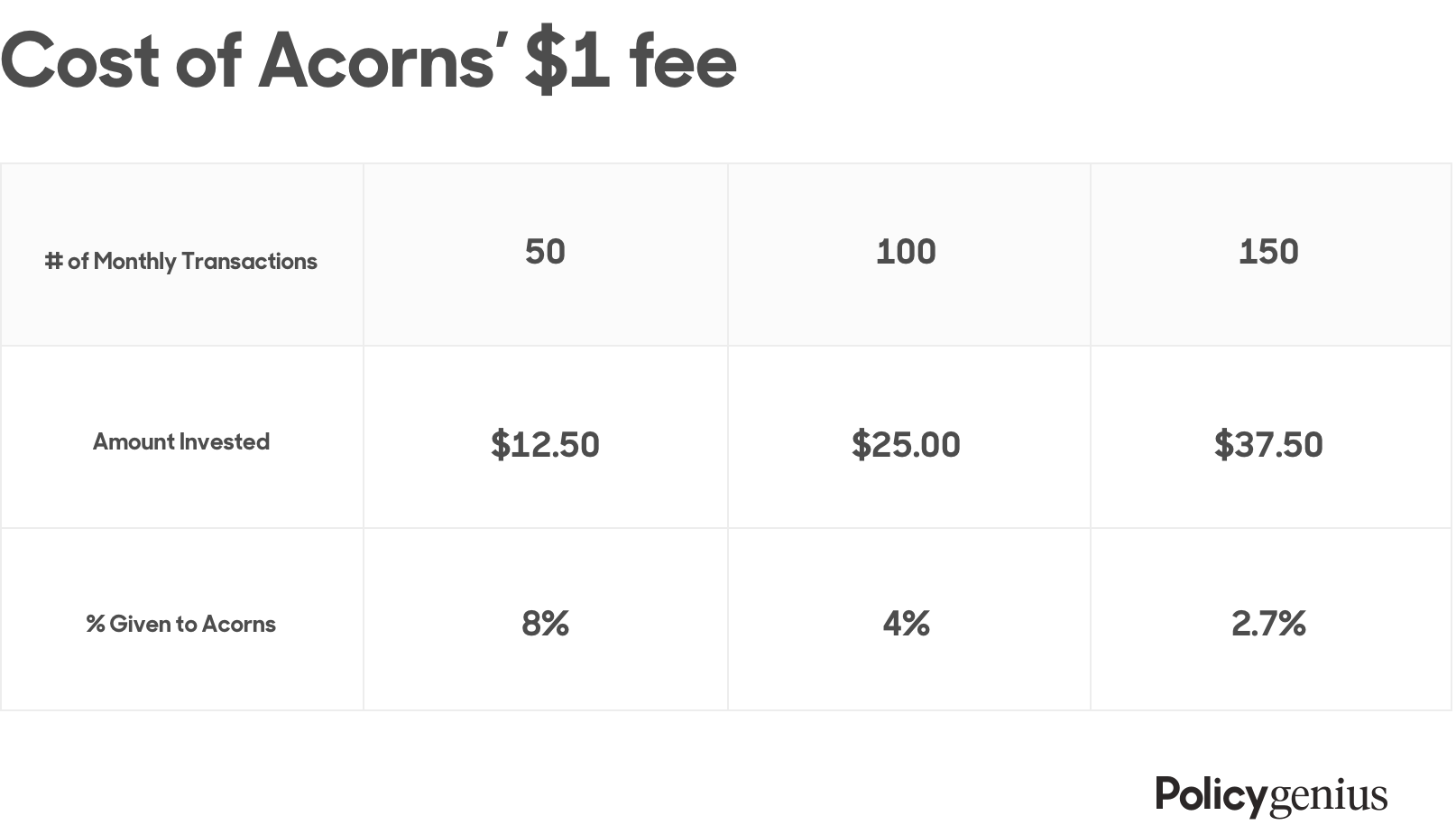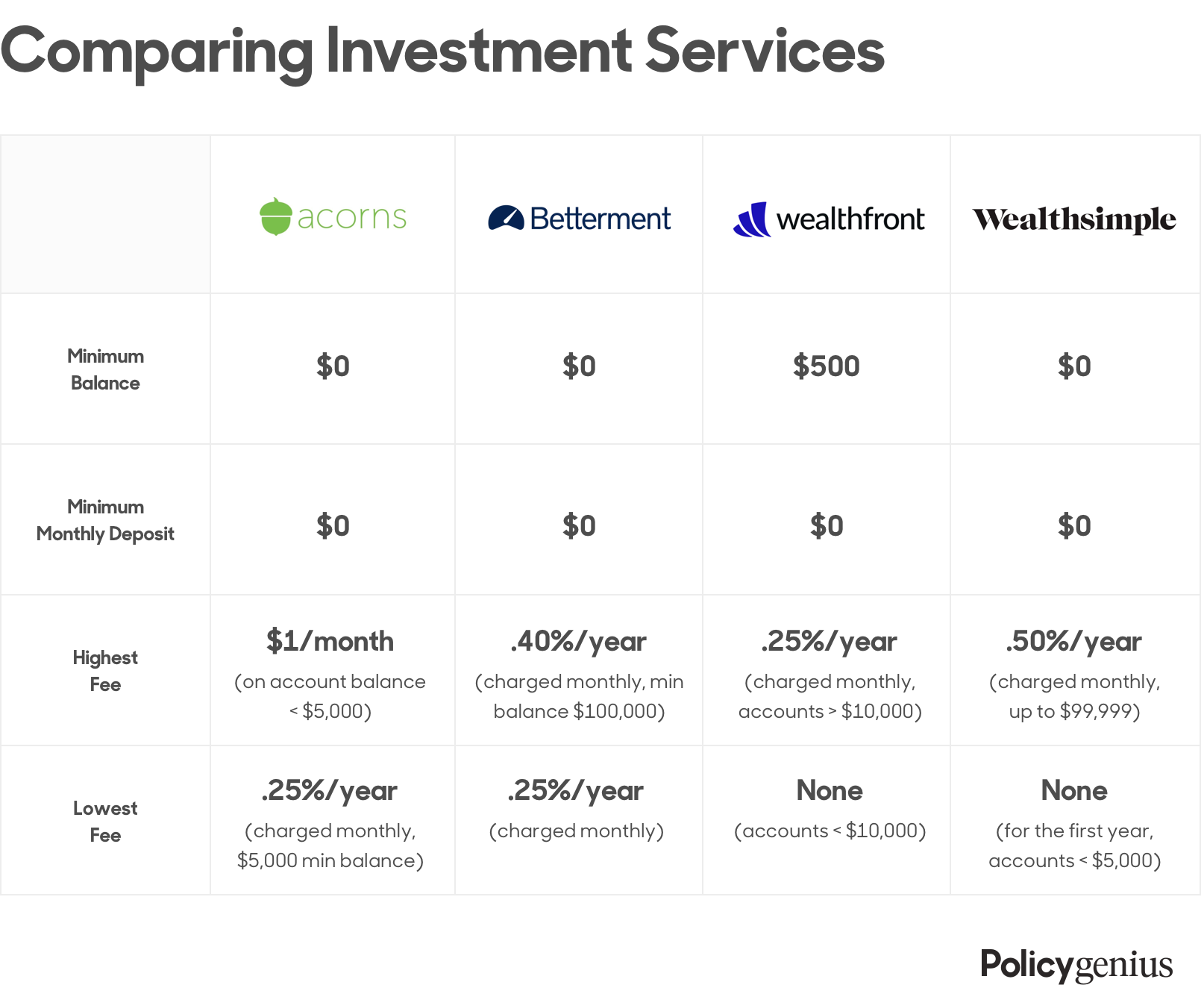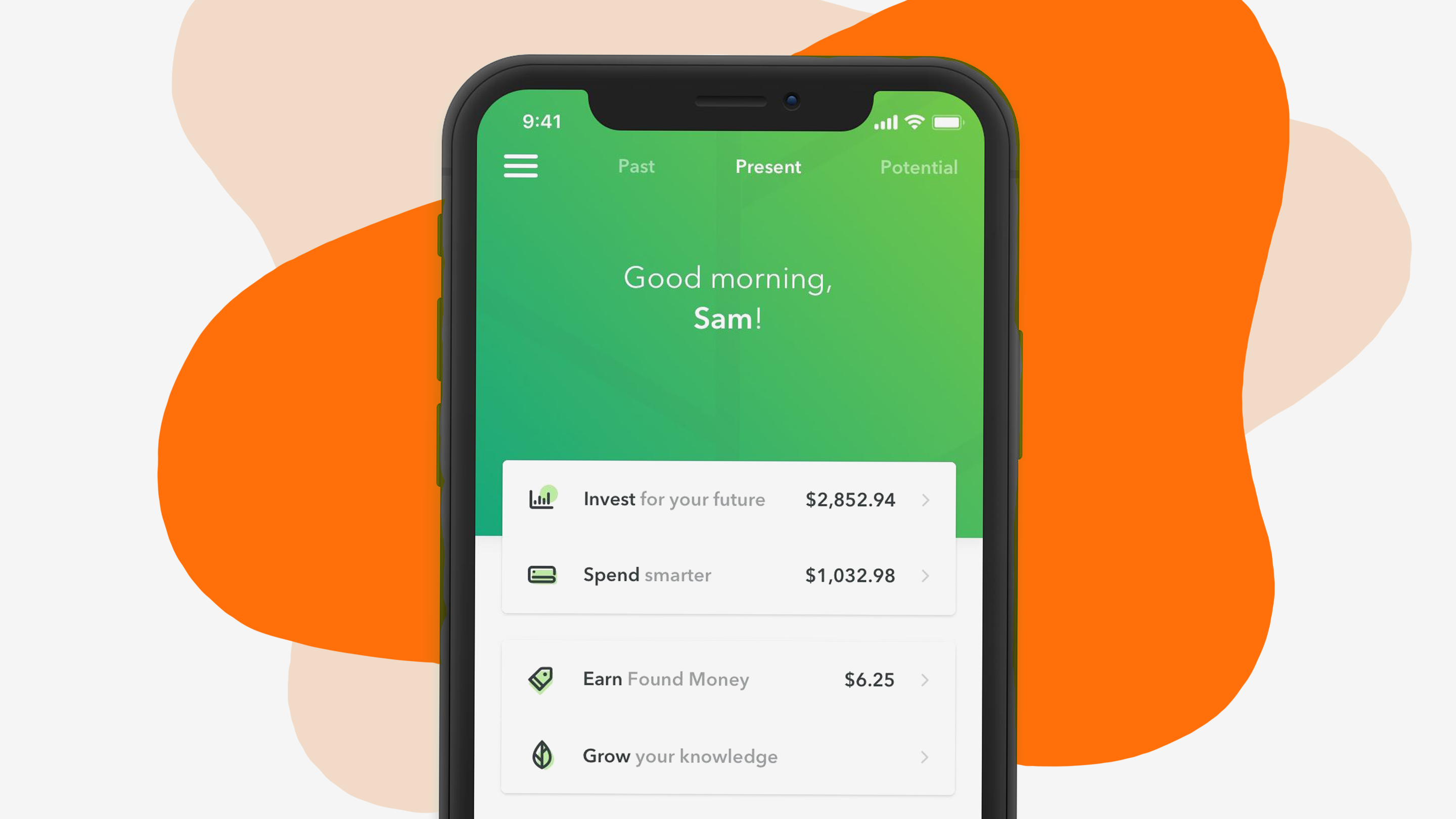Updated September 18, 2020: You may have heard of Acorns. Acorns is an investing app lets people automatically invest their spare change by rounding up the purchases they make with a linked credit or debit card. Acorns, currently valued at $860 million, has been lauded by investors and journalists alike for finally getting millennials interested in investing. (The demographic – notoriously skittish when it comes to the market — makes up the majority of Acorns’ over 5 million users.) But is the micro-investing app worth its fees? Check out our full Acorns app review.
How does Acorns work?
The Acorns investing app encourages you to invest your spare change using a system it calls "round-ups." Acorns monitors your bank account and automatically invests the change from your daily purchases. For example, if you buy a coffee for $2.75, Acorns will round up to $3.00 and automatically invest $.25.
The “save your spare change” feature is Acorns’ key selling point, along with ease of use. Unlike financial tech startups Betterment and Wealthfront, which offer more robust investment services, Acorns was built to be mobile-first. It was originally available only as an iOS or Android app, though the company ultimately launched a web version.
Acorns review
Part of being an app means making the investing process as simple as possible. While Betterment and Wealthfront give you a wide variety of options to customize your portfolio, Acorns forces you to choose between their five default “smart portfolios” built with the help of Harry Markowitz, father of the Modern Portfolio Theory. The app will suggest one of these portfolios — conservative, moderately conservative, moderate, moderately aggressive, or aggressive — based on your savings goals and risk tolerance. You can alternately choose one yourself. Acorns will automatically rebalance your portfolio as the market changes.
There are no minimums to set up an Acorns account, but you need $5 to start investing.
How much does Acorns cost?
You won't see many Acorns reviews telling you that there's a danger to investing too little, but it’s important to understand how the return on an Acorns account stacks up against full-service investment apps. Acorns fees are $1 per month for all accounts with a balance under $1 million. The monthly fee rises $100 per month for every million you invest afterwards. Compared to traditional management, mutual funds, and DIY ETFs, this fee is incredibly low. Other portfolio advisory services, like Amerivest, charge as much as 1.25% and require a minimum investment of $25,000.
But, while Acorns’ fees seem low on the surface, Acorns’ traditional competitors aren’t encouraging would-be investors to build a portfolio around their spare change. When you’re dealing with just a few dollars every month, that $1 fee starts to make less sense.
For instance, if you make 50 transactions each month with an average of $.25 rounded up per transaction, you’re only investing $12.50 every month. At that rate, Acorns’ monthly fee is taking away 8% of your contribution to your investment portfolio in your first month. Keep in mind that Acorns doesn't take its subscription fee out of your account, but rather a linked funding source so that the monthly fee doesnt' directly impact your losses and gains.
The more transactions you have (the more you’re spending, perhaps multiple small purchases like coffee or fast food) this percentage will go down. At 100 transactions per month with an average of $.25 per transaction, you’ll invest $25 the first month and give 4% to Acorns. At 150 transactions, you’re investing $37.50 and giving almost 2.7% to Acorns.

Note that none of this takes into account the money you already have in your account, slowly (or quickly) growing (or shrinking) because of market changes. If your portfolio grows a few bucks and Acorns reinvests it, that effectively adds to your monthly contribution. However, until your portfolio grows to be thousands of dollars, your portfolio growth is unlikely to make a noticeable difference to your bottom line month over month.
Acorns vs Betterment vs Wealthfront vs Wealthsimple
Betterment only charges .25% in fees per year for its baseline price tier, amounting to mere cents per month while you are building up your portfolio.
And what about Wealthfront, another robo-advisor? They require a minimum balance of $500. They do, however, manage the first $10,000 of every account for free. Canadian robo-advisor Wealthsimple has relatively higher fees of up to .50%, but also offer a human touch.

Acorns features & services
To boost your Acorns balance, you can set up recurring deposits of larger amounts, get referral bonuses and earn extra cash to invest by shopping through Found Money, the core Acorns app’s rewards program, though these features aren’t as heavily advertised as the opportunity to invest your change. The services are popular, however, says Acorns CEO Noah Kerner, with a typical customer investing over $60 per month.
“The majority of our customers take advantage of Acorns’ full suite of tools and services, making the small $1 per month subscription quite reasonable,” Kerner told Policygenius in a written statement.
Acorns' other services include:
Acorns Later: Acorns Later is an individual retirement account available to Acorns investing app users. People who open an IRA through Acorns Later pay $2 a month for both accounts.
Acorns Spend: Acorns also has an FDIC-insured checking account plus debit card, called Acorns Spend, that its Core users can pre-order. You pay $3 a month if you have Acorns, Acorns Later and Acorns Spend.
Found Money: Acorns has a cashback program that's a bit similar to one you might see with a rewards credit card. If you make a purchase through an Acorns Found Money partner, that company will automatically invest in your Acorns portfolio.
Is Acorns worth it?
Acorns investing is positioned as the best choice for many millennials looking to dip their toes into the waters of investing, but, as this Acorns review shows, it doesn't mean it’s the best choice for you. As the chart illustrates, the Acorns investing app is relatively expensive. If you keep a small balance, you'll wind up paying a high percentage of those assets in Acorns management fees.
If you can't afford to fork over $500 right now and start your journey toward full-fledged investing, you might consider putting some money into a savings account instead. A high-yield savings account is usually free and will allow you to grow small amounts of money over time. Once you’ve reached a self-imposed threshold —either Weathfront’s $500 minimum or some other savings goal — you can revisit the idea of putting that money in an investment portfolio instead.
Acorns does waive the $1 account management fee on its core micro-investing app for college students, so, if you’re still in school, it’s an easy — and free — way to start saving. You’ll need a valid .edu email address to take advantage of that offer. Acorns is also worthwhile if you're brand new to investing and looking for an quick, easy way to get started.
The best investment apps
These days, prospective investors have more choices than ever before. Spare change apps like Acorns can help you get more comfortable with investing, but you can also consider doing business with a robo-advisor like Betterment or Wealthfront, which mix automation (no trading or stock picking) with access to financial planners. There are also online brokers like Robinhood and Stash that let you trade and manage stocks yourself.
Want to learn more about new ways to invest? Check out our roundup of the best investing apps.
Image: Acorns
